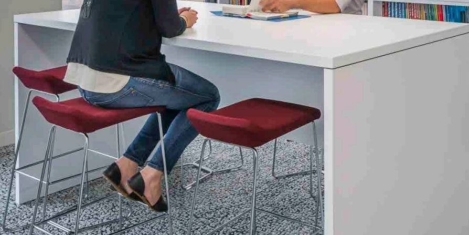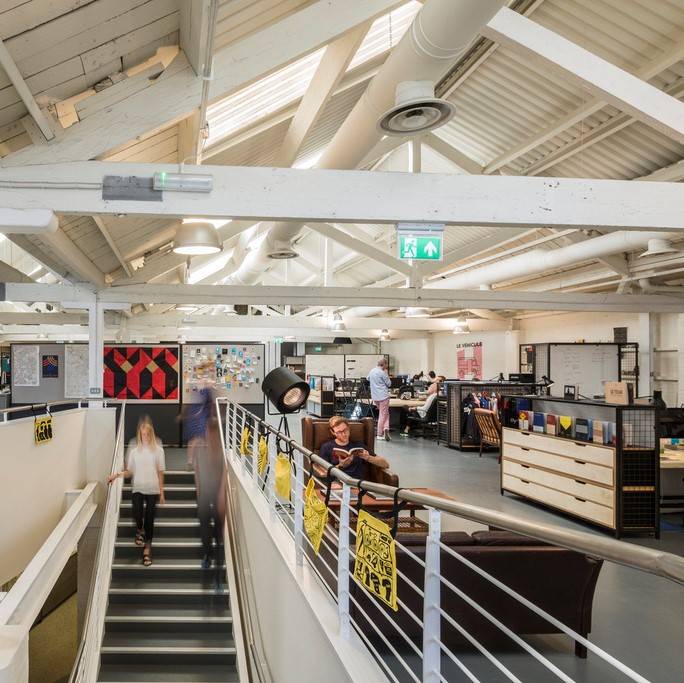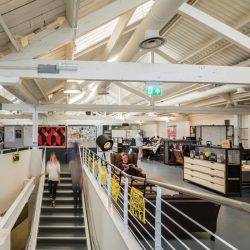April 25, 2018
Report sets out business case for health and wellbeing in green buildings
 The World Green Building Council has launched a new report highlighting what it suggests are the tangible economic benefits of green buildings and the improved levels of occupant satisfaction when companies implement new health, wellbeing and productivity features in existing green structures. Doing Right by Planet and People: The Business Case for Health and Wellbeing in Green Building presents case studies of 11 facilities around the globe that have one or more green certifications including LEED, Green Star and BREEAM. The report evaluates health and wellbeing features that were integrated into the facilities, such as enhanced fresh air ventilation, acoustic privacy, increase of daylight penetration and use of biophilic design elements such as green walls and extensive indoor plants.
The World Green Building Council has launched a new report highlighting what it suggests are the tangible economic benefits of green buildings and the improved levels of occupant satisfaction when companies implement new health, wellbeing and productivity features in existing green structures. Doing Right by Planet and People: The Business Case for Health and Wellbeing in Green Building presents case studies of 11 facilities around the globe that have one or more green certifications including LEED, Green Star and BREEAM. The report evaluates health and wellbeing features that were integrated into the facilities, such as enhanced fresh air ventilation, acoustic privacy, increase of daylight penetration and use of biophilic design elements such as green walls and extensive indoor plants.













 The construction industry needs new talent and skills to help in the adoption of new technologies to meet the challenges of digital transformation. It must also become more diverse, including increasing the percentage of women in the industry. These are the recommendations of a new report from the World Economic Forum, developed in collaboration with The Boston Consulting Group (BCG), Shaping the Future of Construction: An Action Plan to solve the Industry’s Talent Gap. The report argues that the Infrastructure and Urban Development (IU) industry has failed to innovate as quickly as other sectors, resulting in stagnating productivity and negative effects on the economy, society and the environment. An ongoing industry-wide shortage of qualified workers is among the key reasons for this issue. It has undermined project management and execution, adversely affecting cost, timelines and quality. It also has impeded the adoption of new digital technologies, such as building information modelling (BIM), automated equipment and cloud-based collaboration tools, which could improve productivity. The report provides twelve key actions which needs to be implemented to close the structural talent gap of the construction industry.
The construction industry needs new talent and skills to help in the adoption of new technologies to meet the challenges of digital transformation. It must also become more diverse, including increasing the percentage of women in the industry. These are the recommendations of a new report from the World Economic Forum, developed in collaboration with The Boston Consulting Group (BCG), Shaping the Future of Construction: An Action Plan to solve the Industry’s Talent Gap. The report argues that the Infrastructure and Urban Development (IU) industry has failed to innovate as quickly as other sectors, resulting in stagnating productivity and negative effects on the economy, society and the environment. An ongoing industry-wide shortage of qualified workers is among the key reasons for this issue. It has undermined project management and execution, adversely affecting cost, timelines and quality. It also has impeded the adoption of new digital technologies, such as building information modelling (BIM), automated equipment and cloud-based collaboration tools, which could improve productivity. The report provides twelve key actions which needs to be implemented to close the structural talent gap of the construction industry.






















March 6, 2018
How to reboot an activity based working project that has ground to a halt
by Karin Stahl • Comment, Flexible working, Technology, Workplace design